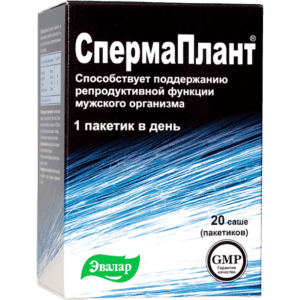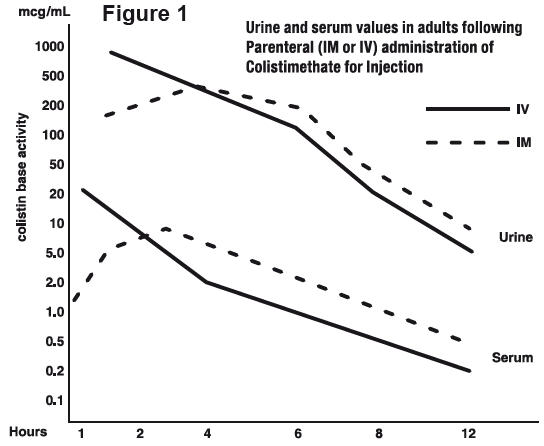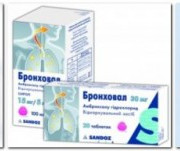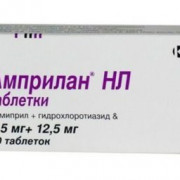Альфа нормикс — инструкция по применению
Содержание:
- Инструкция по применению
- Rifaximin dosing information
- Before using rifaximin
- What do I need to tell my doctor BEFORE I take Rifaximin?
- What are some other side effects of Rifaximin?
- Pharmacology
- What is rifaximin?
- Показания для использования
- Показания
- Medical uses
- Аналоги
- Особые указания по применению данного медикамента
- Precautions while using rifaximin
- Proper use of rifaximin
- Availability
- How should I take rifaximin?
- Складывается впечатление
- Rifaximin side effects
- References
- What are some side effects that I need to call my doctor about right away?
- Rifaximin side effects
- Подведем итог
Инструкция по применению
Препараты с этим действующим веществом (торговые наименования)
Латинское название вещества
RIFAXIMIN
Фармакология
Антибиотик широкого спектра действия, является полусинтетическим производным рифамицина SV. Необратимо связывает бета-субъединицы фермента бактерий, ДНК-зависимой РНК-полимеразы и, следовательно, ингибирует синтез РНК и белков бактерий. В результате необратимого связывания с ферментом, рифаксимин проявляет бактерицидные свойства в отношении чувствительных бактерий.
Обладает широким спектром антибактериальной активности, включающим большинство грамотрицательных и грамположительных, аэробных и анаэробных бактерий, вызывающих желудочно-кишечные инфекции, включая диарею путешественников.
Активен в отношении грамотрицательных аэробных бактерий: Salmonella spp., Shigella spp., энтеропатогенные штаммы Escherichia coli, Proteus spp., Campylobacter spp., Pseudomonas spp., Yersinia spp., Enterobacter spp., Klebsiella spp., Helicobacter pylori; грамотрицательных анаэробов: Bacteroides spp., включая Bacteroides fragilis, Fusobacterium nucleatum; грамположительных аэробов: Streptococcus spp., Enterococcus spp., включая Enterococcus fecalis, Staphylococcus spp.; грамположительных анаэробов: Clostridium spp., включая Clostridium difficile и Clostridium perfrigens, Peptostreptococcus spp.
Рифаксимин уменьшает образование бактериями аммиака и других токсических соединений, которые в случае тяжелого заболевания печени, сопровождающегося нарушением процесса детоксификации, участвуют в патогенезе печеночной энцефалопатии; повышенную пролиферацию бактерий при синдроме избыточного роста микроорганизмов в кишечнике; присутствие в дивертикуле ободочной кишки бактерий, которые могут вызывать воспаление внутри и вокруг дивертикулярного мешка и возможно играют ключевую роль в развитии симптомов и осложнений дивертикулярной болезни; интенсивность антигенного стимула, который при наличии генетически обусловленных дефектов в иммунорегуляции слизистой и/или в защитной функции может инициировать или постоянно поддерживать хроническое воспаление кишечника; риск инфекционных осложнений при колоректальных хирургических вмешательствах.
Действует в просвете кишечника.
Рифаксимин плохо всасывается при приеме внутрь (менее 1%). В ЖКТ создаются очень высокие концентрации антибиотика, которые значительно выше МПК для проверенных энтеропатогенных микроорганизмов.
Не обнаруживается в плазме после приема в терапевтических дозах (предел обнаружения
Практически 100% рифаксимина, принятого внутрь, находится в ЖКТ, где достигаются очень высокие концентрации (концентрации в кале 4-8 мг/г достигаются через 3 сут приема в суточной дозе 800 мг).
Рифаксимин выводится с калом. Обнаруживаемый в моче рифаксимин составляет не более 0.5%.
Противопоказания РИФАКСИМИН
Повышенная чувствительность к рифаксимину и другим антибиотикам группы рифамицинов.
Ограничения к применению
При продолжительном приеме рифаксимина в высоких дозах или при повреждениях слизистой оболочки кишечника небольшие количества активного вещества могут всасываться в системный кровоток и вызвать окрашивание мочи в красноватый цвет, что обусловлено красновато-оранжевой окраской антибиотиков группы рифамицинов.
Применение при беременности и лактации
При беременности применение возможно только в случае крайней необходимости, с соблюдением мер предосторожности и под непосредственным контролем врача. Применение препарата в период грудного вскармливания допускается под медицинским наблюдением
Применение препарата в период грудного вскармливания допускается под медицинским наблюдением.
Способ применения и дозировка РИФАКСИМИН
Взрослым и детям старше 12 лет назначают по 200 мг каждые 8 ч или по 400 мг каждые 8-12 ч. При необходимости дозы и частота приема могут быть изменены под контролем врача. Продолжительность лечения не должна превышать 7 дней и определяется клиническим состоянием пациентов. Повторный курс лечения следует проводить не ранее, чем через 20-40 дней.
Источник
Информация предоставлена справочником лекарственных средств «Видаль».
Последняя актуализация описания 28.09.2011
Rifaximin dosing information
Usual Adult Dose for Traveler’s Diarrhea:
200 mg orally 3 times a day for 3 daysComments:-Should not use in patients with diarrhea complicated by fever and/or blood in the stool or diarrhea caused by pathogens other than Escherichia coliUse: For the treatment of travelers’ diarrhea due to noninvasive strains of E coli
Usual Adult Dose for Hepatic Encephalopathy:
550 mg orally twice a dayComments:-In trials, lactulose was used concomitantly in 91% of patients; differences in treatment effect of patients not using concomitant lactulose could not be assessed.Use: For reduction in risk of overt hepatic encephalopathy recurrence
Usual Adult Dose for Irritable Bowel Syndrome:
550 mg orally 3 times a day for 14 daysComments:-If symptoms recur, patients can be retreated up to 2 times with the same dose regimen.Use: For the treatment of irritable bowel syndrome with diarrhea
Usual Pediatric Dose for Traveler’s Diarrhea:
12 years or older: 200 mg orally 3 times a day for 3 daysComments:-Should not use in patients with diarrhea complicated by fever and/or blood in the stool or diarrhea caused by pathogens other than E coliUse: For the treatment of travelers’ diarrhea due to noninvasive strains of E coli
Before using rifaximin
In deciding to use a medicine, the risks of taking the medicine must be weighed against the good it will do. This is a decision you and your doctor will make. For rifaximin, the following should be considered:
Allergies
Tell your doctor if you have ever had any unusual or allergic reaction to rifaximin or any other medicines. Also tell your health care professional if you have any other types of allergies, such as to foods, dyes, preservatives, or animals. For non-prescription products, read the label or package ingredients carefully.
Pediatric
Appropriate studies have not been performed on the relationship of age to the effects of rifaximin in children younger than 12 years of age with traveler’s diarrhea, and in children with hepatic encephalopathy and irritable bowel syndrome with diarrhea. Safety and efficacy have not been established in these age groups.
Geriatric
Appropriate studies performed to date have not demonstrated geriatric-specific problems that would limit the usefulness of rifaximin in the elderly.
Breastfeeding
There are no adequate studies in women for determining infant risk when using this medication during breastfeeding. Weigh the potential benefits against the potential risks before taking this medication while breastfeeding.
Interactions with medicines
Although certain medicines should not be used together at all, in other cases two different medicines may be used together even if an interaction might occur. In these cases, your doctor may want to change the dose, or other precautions may be necessary. When you are taking rifaximin, it is especially important that your healthcare professional know if you are taking any of the medicines listed below. The following interactions have been selected on the basis of their potential significance and are not necessarily all-inclusive.
Using rifaximin with any of the following medicines is usually not recommended, but may be required in some cases. If both medicines are prescribed together, your doctor may change the dose or how often you use one or both of the medicines.
Cholera Vaccine, Live
Interactions with food/tobacco/alcohol
Certain medicines should not be used at or around the time of eating food or eating certain types of food since interactions may occur. Using alcohol or tobacco with certain medicines may also cause interactions to occur. Discuss with your healthcare professional the use of your medicine with food, alcohol, or tobacco.
Other medical problems
The presence of other medical problems may affect the use of rifaximin. Make sure you tell your doctor if you have any other medical problems, especially:
- Diarrhea and blood in the stool or
- Diarrhea and fever or
- Diarrhea caused by antibiotics or
- Diarrhea not caused by Escherichia coli—Should not be used in patients with these conditions.
Liver disease, severe—Use with caution. The effects may be increased because of slower removal of the medicine from the body.
What do I need to tell my doctor BEFORE I take Rifaximin?
- If you have an allergy to rifaximin or any other part of rifaximin.
- If you are allergic to rifaximin; any part of rifaximin; or any other drugs, foods, or substances. Tell your doctor about the allergy and
what signs you had. - If you have diarrhea along with fever or blood in the stool.
This is not a list of all drugs or health problems that interact with rifaximin.
Tell your doctor and pharmacist about all of your drugs (prescription or OTC, natural products, vitamins) and health problems. You must check
to make sure that it is safe for you to take rifaximin with all of your drugs and health problems. Do not start, stop, or change the dose of
any drug without checking with your doctor.
What are some other side effects of Rifaximin?
All drugs may cause side effects. However, many people have no side effects or only have minor side effects. Call your doctor or get medical
help if any of these side effects or any other side effects bother you or do not go away:
- Headache.
- Dizziness.
- Belly pain.
- Upset stomach.
- Feeling tired or weak.
- Muscle spasm.
- Nose or throat irritation.
- Joint pain.
These are not all of the side effects that may occur. If you have questions about side effects, call your doctor. Call your doctor for medical
advice about side effects.
You may report side effects to the FDA at 1-800-332-1088. You may also report side effects at https://www.fda.gov/medwatch.
Pharmacology
Rifaximin is a semisynthetic broad spectrum antibacterial drug, that has very low bioavailability due to its poor absorption after oral administration. Because of this local action within the gut and the lack of horizontal transfer of resistant genes the development of bacterial resistance is rare. Because of this poor absorption, most of the drug taken orally stays in the gastrointestinal tract where the infection takes place. However, due to drug polymorphisms and differences between crystalline and amorphous forms of the compounds, certain generic drug versions are more readily absorbable than the original brand name version.
Mechanism of action
Rifaximin interferes with transcription by binding to the β-subunit of bacterial RNA polymerase. This results in the blockage of the translocation step that normally follows the formation of the first phosphodiester bond, which occurs in the transcription process. This in turn results in a reduction of bacteria populations, including gas producing bacteria, which may reduce mucosal inflammation, epithelial dysfunction and visceral hypersensitivity. Rifaximin has broad spectrum antibacterial properties against both gram positive and gram negative anaerobic and aerobic bacteria. As a result of bile acid solubility, its antibacterial action is limited mostly to the small intestine and less so the colon. A resetting of the bacteria composition has also been suggested as a possible mechanism of action for relief of IBS symptoms. Additionally, rifaximin may have a direct anti-inflammatory effect on gut mucosa via modulation of the pregnane X receptor.
Other mechanisms for its therapeutic properties include inhibition of bacterial translocation across the epithelial lining of the intestine, inhibition of adherence of bacteria to the epithelial cells and a reduction in the expression of proinflammatory cytokines.
What is rifaximin?
Rifaximin is used to treat travelers’ diarrhea caused by Escherichia coli (E. coli) in adults and children who are at least 12 years old. Most people get this infection by eating food or drinking fluids that have been contaminated with the E. coli bacteria.
Rifaximin is also used to treat irritable bowel syndrome (IBS) in adults whose main symptom is diarrhea.
Rifaximin is also used to lower the risk of a decline in brain function in adults with liver failure. Brain function can be affected when the liver stops working and cannot remove toxic substances from the body.
Rifaximin may also be used for purposes not listed in this medication guide.
Показания для использования
Несмотря на то что можно без рецепта приобрести «Альфа Нормикс», отзывы врачей не рекомендуют так поступать. Медики настоятельно советуют предварительно получить консультацию, так как самостоятельное применение антибиотиков бывает не всегда правильным. Тем не менее медикамент эффективно справляется со многими кишечными заболеваниями. Вам, вероятно, нужен «Альфа Нормикс», если есть такие симптомы:
- понос инфекционного характера;
- тошнота, рвота, интоксикация;
- диарея путешественников;
- избыточный рост патогенной флоры в кишечнике;
- вздутие живота, боль, вызванные употреблением некачественной или испорченной пищи.
Медикамент будет эффективен при всех кишечных расстройствах, которые вызваны чувствительными микроорганизмами. Применяют его в качестве профилактического средства при колоректальных вмешательствах.
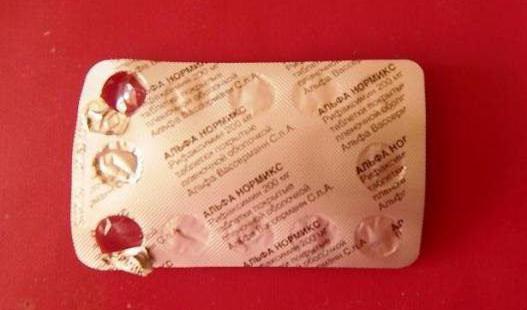
Показания
Для приема внутрь: острые и хронические кишечные инфекции, вызванные грамположительными и грам-отрицательными микроорганизмами, диарейный синдром, диарея, вызванная нарушением равновесия кишечной микрофлоры (летняя диарея, диарея путешественников, энтероколит), пре- и постоперационная профилактика инфекционных осложнений при хирургическом вмешательстве на органах ПС. Для наружного применения: инфекционно-воспалительные и гнойные заболевания кожи, вызванные чувствительными к препарату микроорганизмами, в т. ч. контагиозное импетиго, опрелости, эктима, фолликулит, фурункулез, ангулярный хейлит, гидраденит, эритразма.
Medical uses
Rifaximin may be used to treat and prevent traveler’s diarrhea.
Irritable bowel syndrome
Rifaximin is approved in the United States for the treatment of irritable bowel syndrome. It possesses anti-inflammatory and antibacterial properties and additionally, it is a nonabsorbable antibiotic that acts locally in the gut. These properties make it efficacious in relieving chronic functional symptoms of non-constipation type irritable bowel syndrome (IBS). It appears to retain its therapeutic properties for this indication, even after repeated courses. Rifaximin is particularly indicated where small intestine bacterial overgrowth is suspected of involvement in a person’s IBS. Symptom relief or improvement can be obtained for global IBS symptoms including: abdominal pain, flatulence, bloating, and stool consistency. A drawback is that repeated courses may be necessary for relapse of symptoms. There is evidence that rifaximin can be curative in some people with IBS.
C. difficile infection
Rifaximin may also be a useful addition to vancomycin when treating patients with relapsing C. difficile infection. However the quality of evidence of these studies was judged to be low. Although exposure to rifamycins in the past may increase risk for resistance, so rifaximin should be avoided in such cases.
Hepatic encephalopathy
In the United States, rifaximin has orphan drug status for the treatment of hepatic encephalopathy. Although high-quality evidence is still lacking, rifaximin appears to be as effective as or more effective than other available treatments for hepatic encephalopathy (such as lactulose), is better tolerated, and may work faster. Rifaximin is taken by mouth. It has minimal side effects, prevents reoccurring encephalopathy, and is associated with high patient satisfaction. People are more compliant and satisfied to take this medication than any other due to minimal side effects, prolonged remission, and overall cost. It reduces the levels of intestinal ammonia-producing bacteria thus alleviating the symptoms of hepatic encephalopathy and reducing mortality. The drawbacks to rifaximin are increased cost and lack of robust clinical trials for HE without combination lactulose therapy.
Other uses
Other uses include treatment of: infectious diarrhea, small intestinal bacterial overgrowth, inflammatory bowel disease, and diverticular disease. Rifaximin is effective in treating small intestinal bacterial overgrowth regardless of whether it is associated with irritable bowel syndrome or not. Rifaximin has also shown efficacy with rosacea, ocular rosacea which also presents as dry eyes for patients with co-occurrence with SIBO.
Аналоги
- Бактисубтил капсулы;
- Бактериофаг сальмонеллезный групп A, B, C, D, E – раствор, суспензия, таблетки и ректальные суппозитории;
- Бактрим таблетки и суспензия для приема внутрь;
- Берлоцид таблетки и суспензия для приема внутрь;
- Би-Септин таблетки;
- Бисептол таблетки и суспензия для приема внутрь;
- Брифесептол таблетки и концентрат для приготовления раствора для инфузий;
- Двасептол таблетки;
- Ко-тримоксазол таблетки, суспензия и гранулы для приготовления суспензии для приема внутрь;
- Нифуроксазид и Нифуроксазид-Рихтер суспензия и таблетки;
- Панклав таблетки;
- Полимиксина-М-сульфат таблетки;
- Ориприм таблетки и суспензия для приема внутрь;
- Синерсул таблетки и сироп;
- Стопдиар суспензия и таблетки;
- Сулотрим таблетки;
- Сульгин таблетки;
- Фталазол таблетки;
- Фуразолидон таблетки;
- Экофурил капсулы;
- Энтерол капсулы и порошок для приготовления раствора для приема внутрь;
- Энтерофурил капсулы и суспензия;
- Эрсефурил капсулы.
Дешевые аналоги Альфа Нормикс
- Бактрим (ориентировочная стоимость 120 – 167 рублей);
- Бисептол (32 – 90 рублей);
- Ко-тримоксазол (48 – 96 рублей);
- Нифуроксазид (67 – 290 рублей);
- Синерсул (140 – 300 рублей);
- Стопдиар (150 – 300 рублей);
- Сульгин (42 – 108 рублей);
- Фталазол (15 – 20 рублей);
- Фуразолидон (60 – 230 рублей);
- Экофурил (200 – 340 рублей).
Особые указания по применению данного медикамента
Довольно часто становится актуальным вопрос о том, можно ли беременным женщинам принимать данный препарат. Согласно заявленной информации в инструкции, принимать «Рифаксимин» можно только в крайних случаях и под строгим контролем лечащего врача.
Что касается кормящих матерей, то на период приема данного медикамента от кормлений необходимо отказаться.
Детям до двух лет обычно такой препарат не назначают, но в некоторых случаях, когда ситуация жизненно важна, его могут назначить. В таком случае употребление происходит под строгим наблюдением лечащего доктора.
Это подтверждает к медикаменту «Рифаксимин» инструкция по применению.
Precautions while using rifaximin
It is very important that your doctor check the progress of you or your child to see if the medicine is working properly. This will allow your doctor to decide if you or your child should continue to take it.
Check with your doctor right away if the diarrhea does not stop in 1 or 2 days or if you or your child develop a fever or have blood in your stool.
A person can become dehydrated if too much fluid is lost from the body with diarrhea. Make sure you or your child drink plenty of fluids while you have diarrhea. Check with your doctor right away if you or your child have more than one of the following symptoms: decreased urination, dizziness, dry mouth, increased thirst, or lightheadedness.
Do not take other medicines unless they have been discussed with your doctor. This includes prescription or nonprescription (over-the-counter ) medicines and herbal or vitamin supplements.
Proper use of rifaximin
Take rifaximin exactly as directed by your doctor. Do not take more of it, do not take it more often, and do not take it for a longer time than your doctor ordered.
You may take rifaximin with or without food.
To help clear up your infection completely, keep taking rifaximin for the full time of treatment, even if you begin to feel better after a few days. If you stop taking rifaximin too soon, your infection may return.
Dosing
The dose of rifaximin will be different for different patients. Follow your doctor’s orders or the directions on the label. The following information includes only the average doses of rifaximin. If your dose is different, do not change it unless your doctor tells you to do so.
The amount of medicine that you take depends on the strength of the medicine. Also, the number of doses you take each day, the time allowed between doses, and the length of time you take the medicine depend on the medical problem for which you are using the medicine.
- For oral dosage form (tablets):
- For treatment of irritable bowel syndrome with diarrhea:
- Adults—550 milligrams (mg) three times a day for 14 days.
- Children—Use and dose must be determined by your doctor.
- For treatment of traveler’s diarrhea:
- Adults and children 12 years of age and older—200 milligrams (mg) three times a day for 3 days.
- Children younger than 12 years of age—Use and dose must be determined by your doctor.
- For preventing hepatic encephalopathy:
- Adults—550 milligrams (mg) two times a day.
- Children—Use and dose must be determined by your doctor.
- For treatment of irritable bowel syndrome with diarrhea:
Missed dose
If you miss a dose of rifaximin, take it as soon as possible. However, if it is almost time for your next dose, skip the missed dose and go back to your regular dosing schedule. Do not double doses.
Storage
Store the medicine in a closed container at room temperature, away from heat, moisture, and direct light. Keep from freezing.
Keep out of the reach of children.
Do not keep outdated medicine or medicine no longer needed.
Ask your healthcare professional how you should dispose of any medicine you do not use.
Availability
In the United States, Salix Pharmaceuticals holds a US Patent for rifaximin and markets the drug under the name Xifaxan. In addition to receiving FDA approval for traveler’s diarrhea and (marketing approved for) hepatic encephalopathy, rifaximin received FDA approval for IBS in May 2015. No generic formulation is available in the US and none has appeared due to the fact that the FDA approval process was ongoing. If rifaximin receives full FDA approval for hepatic encephalopathy it is likely that Salix will maintain marketing exclusivity and be protected from generic formulations until March 24, 2017. In 2018, a patent dispute with Teva was settled which delayed a generic in the United States, with the patent set to expire in 2029.
Rifaximin is approved in 33 countries for GI disorders. On August 13, 2013, Health Canada issued a Notice of Compliance to Salix Pharmaceuticals Inc. for the drug product Zaxine. In India it is available under the brand names Ciboz and Xifapill.[citation needed] In Russia and Ukraine the drug is sold under the name Alfa Normix (Альфа Нормикс), produced by Alfa Wassermann S.p.A (Italy).
In 2018, the FDA approved a similar drug by Cosmos Pharmaceuticals called Aemcolo for traveler’s diarrhea.
How should I take rifaximin?
Follow all directions on your prescription label and read all medication guides or instruction sheets. Use the medicine exactly as directed.
You may take rifaximin with or without food.
For travelers’ diarrhea, rifaximin is usually taken for only 3 days. For IBS, rifaximin is usually taken for 2 weeks at a time. Follow your doctor’s dosing instructions very carefully.
Use this medicine for the full prescribed length of time, even if your symptoms quickly improve. Skipping doses can increase your risk of infection that is resistant to medication. Rifaximin will not treat a viral infection such as the flu or a common cold.
Do not share this medicine with another person, even if they have the same symptoms you have.
Call your doctor if your symptoms do not improve after 24 to 48 hours, or if they get worse while using rifaximin.
Rifaximin does not treat all bacterial forms of travelers’ diarrhea.
Store at room temperature away from moisture and heat.
Складывается впечатление
Что говорят о таком лекарственном средстве, как «Альфа Нормикс» отзывы? Аналоги можно приобрести по меньшей цене. Сам же препарат далеко не дешевый. Но при этом спрос на медикамент не падает. Его приобретают из-за доказанной эффективности.
Потребители также утверждают, что в течение 1-2 суток наступает заметный эффект. Лекарство уничтожает патогенную флору, чем нормализует стул. Диарея проходит, уменьшается боль в животе, и устраняется вздутие. Если в течение трех дней с начала лечения вам не стало лучше – говорят врачи – следует обязательно обратиться в медицинское учреждение за помощью. Так же нужно поступить, если лекарство спровоцировало ухудшение состояния.
Несмотря на рекомендацию производителя не давать лекарство детям, многие врачи назначают именно «Альфа Нормикс». В педиатрии препарат используется уже с двух лет. Родители говорят, что детишки хорошо переносят лекарство, оно им действительно помогает. Приятный вкус сиропа позволяет без труда дать антибиотик ребенку.
Часто медики назначают кишечный антибиотик вместе с сорбентами. Принимать такие препараты необходимо с перерывом в 1-2 часа. Также врачи предупреждают, что заявленное средство способно снижать эффективность оральных контрацептивов.
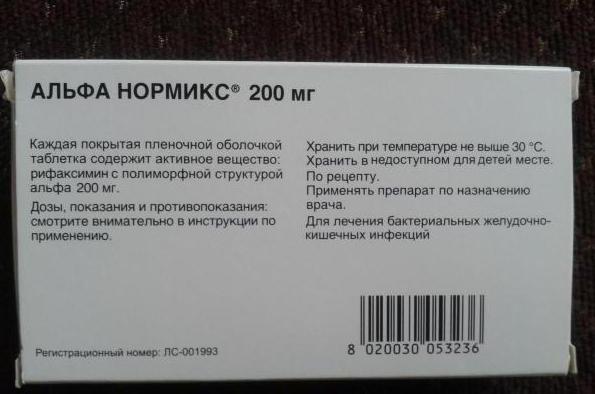
Rifaximin side effects
Get emergency medical help if you have signs of an allergic reaction: hives; difficult breathing; swelling of your face, lips, tongue, or throat.
Call your doctor at once if you have:
-
severe stomach pain, diarrhea that is watery or bloody (even if it occurs months after your last dose);
-
fever; or
-
fluid build-up around the stomach—rapid weight gain, stomach pain and bloating, trouble breathing while lying down.
Common side effects may include:
-
swelling in your hands or feet;
-
nausea;
-
headache, dizziness;
-
tiredness; or
-
abnormal liver function tests.
This is not a complete list of side effects and others may occur. Call your doctor for medical advice about side effects. You may report side effects to FDA at 1-800-FDA-1088.
References
- ^
- DuPont HL (July 2007). «Therapy for and prevention of traveler’s diarrhea». Clinical Infectious Diseases. 45 (Suppl 1): S78-84. doi:. PMID .
- ^
- ^
- ^
- ^ Pimentel M (January 2016). «Review article: potential mechanisms of action of rifaximin in the management of irritable bowel syndrome with diarrhoea». Aliment. Pharmacol. Ther. 43 Suppl 1: 37–49. doi:. PMID .
- Johnson S, Schriever C, Galang M, Kelly CP, Gerding DN (March 2007). «Interruption of recurrent Clostridium difficile-associated diarrhea episodes by serial therapy with vancomycin and rifaximin». Clinical Infectious Diseases. 44 (6): 846–8. doi:. PMID .
- Garey KW, Ghantoji SS, Shah DN, Habib M, Arora V, Jiang ZD, DuPont HL (December 2011). «A randomized, double-blind, placebo-controlled pilot study to assess the ability of rifaximin to prevent recurrent diarrhoea in patients with Clostridium difficile infection». The Journal of Antimicrobial Chemotherapy. 66 (12): 2850–5. doi:. PMID .
- Template:Cite url=https://www.jaad.org/article/S0190-9622(12)02330-4/fulltext
- Taylor DN (December 2005). «Poorly absorbed antibiotics for the treatment of traveler’s diarrhea». Clinical Infectious Diseases. 41 Suppl 8 (Supplement_8): S564-70. doi:. PMID .
- ^
What are some side effects that I need to call my doctor about right away?
WARNING/CAUTION: Even though it may be rare, some people may have very bad and sometimes deadly side effects when taking a drug. Tell your
doctor or get medical help right away if you have any of the following signs or symptoms that may be related to a very bad side effect:
- Signs of an allergic reaction, like rash; hives; itching; red, swollen, blistered, or peeling skin with or without fever; wheezing;
tightness in the chest or throat; trouble breathing, swallowing, or talking; unusual hoarseness; or swelling of the mouth, face, lips, tongue,
or throat. - Swelling in the arms or legs.
- Swelling of belly.
- Feeling very tired or weak.
- Shortness of breath.
- Low mood (depression).
- Fever.
- Diarrhea is common with antibiotics. Rarely, a severe form called C diff–associated diarrhea (CDAD) may happen. Sometimes, this has led
to a deadly bowel problem (colitis). CDAD may happen during or a few months after taking antibiotics. Call your doctor right away if you have
stomach pain, cramps, or very loose, watery, or bloody stools. Check with your doctor before treating diarrhea.
Rifaximin side effects
Along with its needed effects, a medicine may cause some unwanted effects. Although not all of these side effects may occur, if they do occur they may need medical attention.
Check with your doctor immediately if any of the following side effects occur:
More common
- Black, tarry stools
- dizziness or lightheadedness
- muscle spasm
- rapid breathing
- shortness of breath
- trouble sleeping
Less common
- Blood in the urine
- bloody nose
- chest pain
- continuing ringing or buzzing or other unexplained noise in the ears
- fainting
- feeling of constant movement of self or surroundings
- increased heart rate
- sensation of spinning
- sunken eyes
- ulcers, sores, or white spots in the mouth
- unusual bleeding or bruising
- unusual tiredness or weakness
Incidence not known
- Cracks in the skin
- hives or welts, itching skin, or rash
- large, hive-like swelling on the face, eyelids, lips, tongue, throat, hands, legs, feet, or sex organs
- loss of heat from the body
- red, swollen skin
- redness of the skin
- scaly skin
Some side effects may occur that usually do not need medical attention. These side effects may go away during treatment as your body adjusts to the medicine. Also, your health care professional may be able to tell you about ways to prevent or reduce some of these side effects. Check with your health care professional if any of the following side effects continue or are bothersome or if you have any questions about them:
More common
- Bloated
- difficulty with moving
- excess air or gas in the stomach or intestines
- fever
- frequent urge to defecate
- full feeling
- headache
- lower back or side pain
- muscle pain or stiffness
- pain in the joints
- passing gas
- stomach pain
- straining while passing stool
- swelling of the hands, ankles, feet, or lower legs
Less common
- Abnormal dreams
- blurred vision
- chills
- confusion
- cough
- decreased urination
- difficulty having a bowel movement (stool)
- dizziness, faintness, or lightheadedness when getting up suddenly from a lying or sitting position
- dry lips
- dry mouth
- ear pain
- feeling of warmth
- hearing loss
- lightheadedness
- loss of appetite
- loss of taste
- nausea
- painful or difficult urination
- pale skin
- redness of the face, neck, arms, and occasionally, upper chest
- sore throat
- sweating
- swollen glands
- thirst
- vomiting
- wrinkled skin
Other side effects not listed may also occur in some patients. If you notice any other effects, check with your healthcare professional.
Call your doctor for medical advice about side effects. You may report side effects to the FDA at 1-800-FDA-1088.
Подведем итог
Вы познакомились с препаратом «Альфа Нормикс». Цена, отзывы, аналоги представлены в сегодняшней статье. Врачи не рекомендуют полагаться на чье-либо отзывы, расхваливающие антибиотик. Ведь на каждый организм он действует по-разному. Если вы имеете проблемы с пищеварением или чувствуете себя нехорошо, то обязательно обратитесь за медицинской помощью. Препарат «Альфа Нормикс» имеет довольно высокую цену. Будет обидно, если он не поможет. Отсутствие правильного и своевременного лечения может привести к неприятным осложнениям. Принимайте препараты только по назначению врача. Крепкого здоровья!


